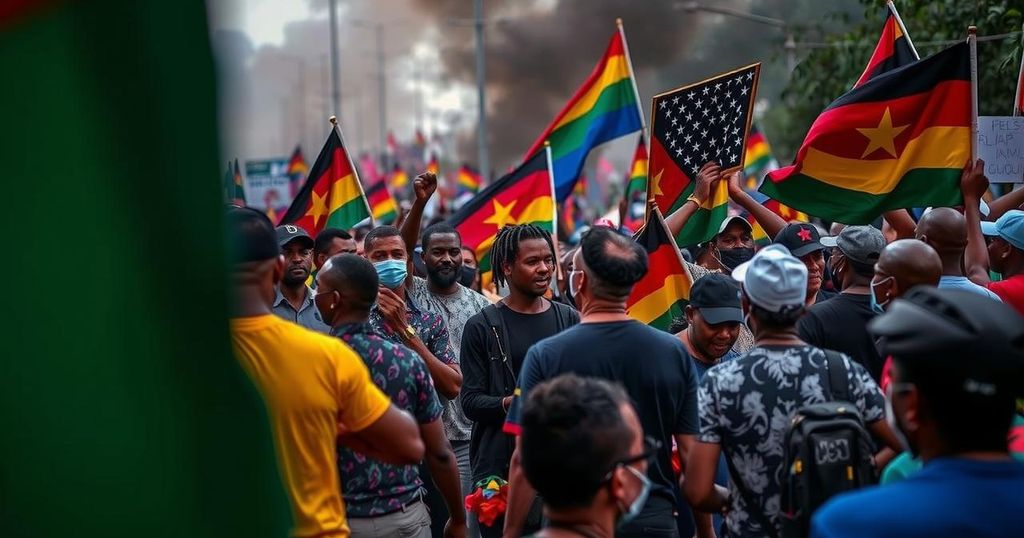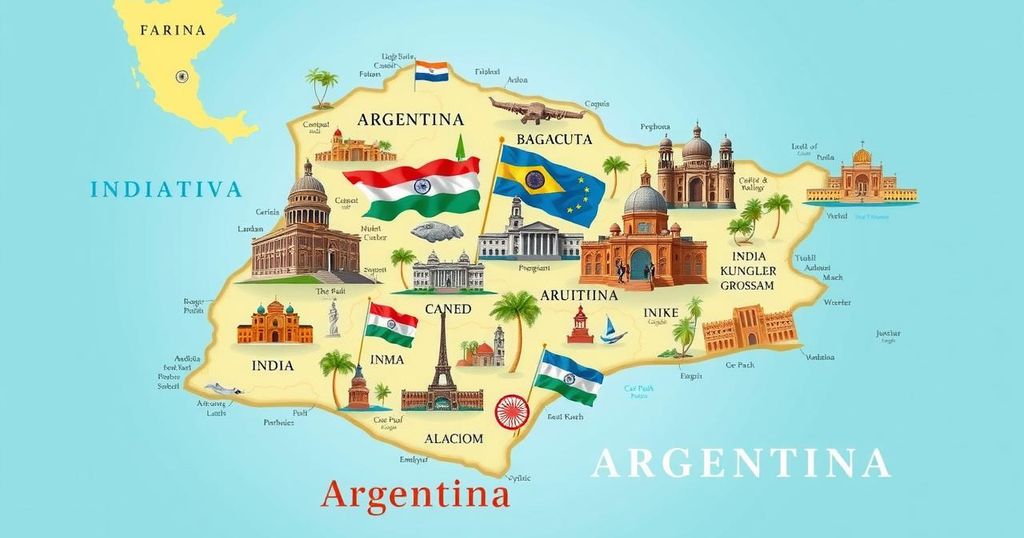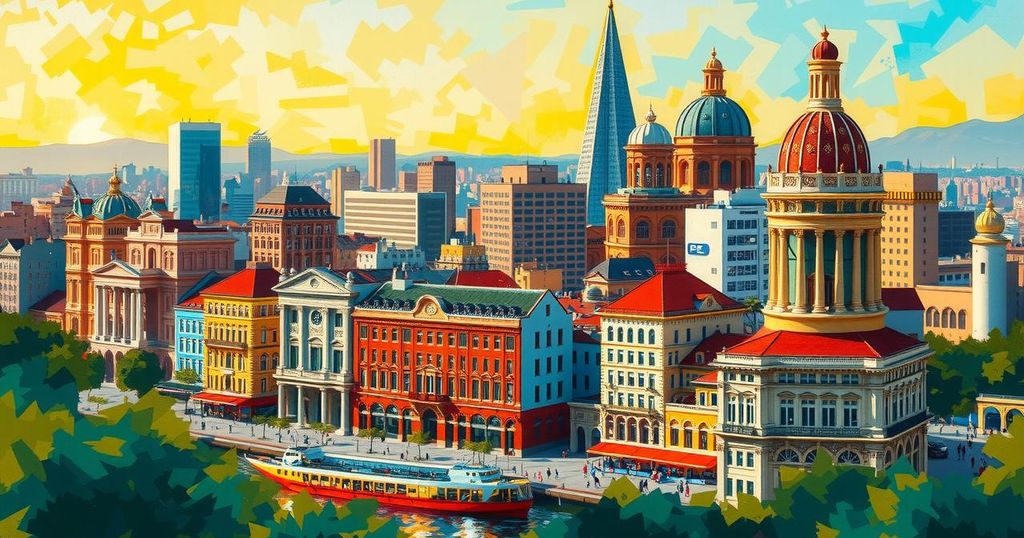Politics
2024 ELECTIONS, AFRICA, ANGELA UAELA, CARMELITA CHISSICO, EL, ELECTIONS, EU, FR, FRELIMO, HUMAN RIGHTS WATCH, MAPUTO, MOZAMBIQUE, OFFICIAL ELECTION COMMISSION, PODEMOS, POLITICAL VIOLENCE, PROTESTS, RIGHTS WATCH, SILVIO JEREMIAS, VENÂNCIO MONDLANE, VIOLENCE, VOTER TURNOUT
Marcus Li
0 Comments
Death Toll Rises Amid Mozambique Protests Against Election Results
The recent protests in Mozambique following the election results have resulted in widespread violence, with at least 11 fatalities, including the tragic death of Silvio Jeremias. Allegations of electoral fraud against the ruling Frelimo party have intensified discontent among the youth, particularly with opposition leader Venâncio Mondlane. The situation raises critical questions about democratic integrity and accountability in governance.
On the night of 25 October, Silvio Jeremias was tragically killed during a protest in the capital of Mozambique, Maputo, against the controversial election results. These results, which indicated that Daniel Chapo, the presidential candidate from the ruling Frelimo party, had won with 70.7% of the vote, have been met with substantial allegations of electoral manipulation. As protests unfolded nationwide, police reportedly discharged live ammunition, resulting in the death of Jeremias, who was only 20 years old and a father to a two-year-old daughter. His death was part of a broader wave of violence, as at least 11 fatalities have been reported amid the unrest, with many others sustaining critical injuries. Human Rights Watch indicated that approximately 50 individuals were severely wounded from gunfire. The police have maintained that their use of live ammunition was solely to disperse the crowds, stating that one fatality resulted from a “stray bullet” during an altercation with opposition supporters. The socio-economic landscape of Mozambique, with a youth demographic that significantly opposes Frelimo’s long-standing regime since independence in 1975, has compounded this turmoil. Venâncio Mondlane, the main opposition candidate from Podemos, has garnered considerable support, particularly among younger voters, and his party claims it rightfully secured 53% of the vote along with 138 parliamentary seats. However, the official electoral authority contends that the Frelimo party has expanded its parliamentary control, raising serious questions regarding the integrity of the electoral process. Allegations of fraudulent voter registrations, ballot stuffing, and counting irregularities have been brought to light by various organizations and observers, including the Catholic bishops of Mozambique and the European Union’s election monitors. Prior to the elections, two individuals associated with Podemos were also shot dead, further exemplifying the perilous environment for opposition voices in the country. As the grieving community mourns Jeremias, the calls for justice and political reform resonate louder. At his memorial service, mourners donned shirts emblazoned with his image, demanding accountability from the government. Their poignant messages encapsulated their hope for democracy, as illustrated by protest signs proclaiming, “You can kill me but don’t kill democracy.”
The political climate in Mozambique is characterized by Frelimo’s extended reign since liberation in 1975, amidst a backdrop of overwhelming poverty affecting its youth. Following the recent elections, the tensions between the ruling party and the opposition have escalated, prompting widespread protests and tragic violence, drawing attention to significant allegations of electoral malpractice. These developments reflect deep-seated challenges to governance and civil rights in the nation, amid cries for change from an increasingly disillusioned populace.
The ongoing unrest in Mozambique highlights the grave implications of perceived electoral fraud and the urgent quest for accountability amidst violence directed at dissenters. The tragic loss of lives, including that of Silvio Jeremias, has ignited a fervent demand for justice and reform among the citizens. As the opposition consolidates its challenge against the ruling party’s authority, the outcomes of these protests could potentially shape the future political landscape of Mozambique significantly.
Original Source: www.theguardian.com




Post Comment